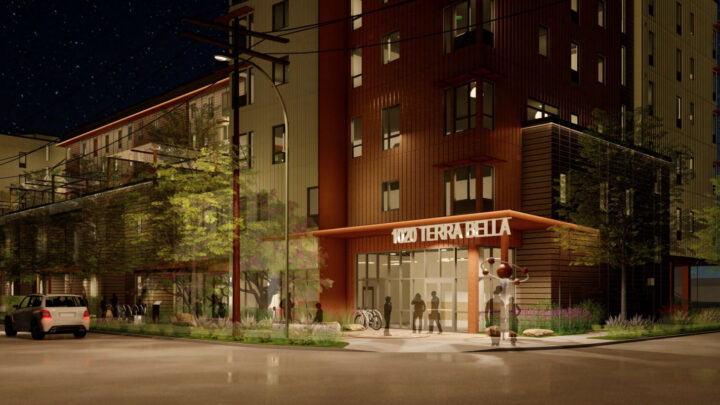Posted on: December 6, 2023
Measure A money has now funded 4,749 affordable homes
Santa Clara County is adding 716 new affordable homes to its housing stock, largely using Measure A money, leaving the county down to its last dollars from the 2016 affordable housing bond.
On Tuesday afternoon, the Santa Clara County Board of Supervisors approved six new developments — one in Palo Alto, two in Mountain View and three in San Jose — that will house up to 2,762 residents once completed.
The six projects will cost $47.4 million with $36.1 million coming from Measure A — a $950 million affordable housing bond approved by voters in 2016.
Since then, the county has allocated roughly $857 million of Measure A funds with $648 million toward 4,749 affordable homes, 51 units short of the county’s overall goal. The rest of the money has gone to other programs like assisting first-time homebuyers with down payments. Thus far, $92.4 million has yet to be spoken for and county officials said $32.3 million of that will be spent on priority projects.
“I really wanted to make sure we could go back to the voters when we told them we were going to get something done and get it done,” Supervisor Cindy Chavez said of Measure A. “It’s important for a lot of reasons, including that we want voters to believe and have confident in their government because we are them and these are their values and we’re implementing their values in real time.”
 In San Jose, a development on Santa Teresa Boulevard will add 49 units, one on North Capitol Avenue will add 160 units with homes dedicated to permanent supportive housing and homeless veterans and another on Kooser Road will add 191 units with 30 of them marked for permanent supportive housing. In Mountain View, a project on Terra Bella Avenue will add 106 units with 27 of them for rapid rehousing for homeless families and individuals and another on West El Camino Real will be 79 units. The development on El Camino Real in Palo Alto will be 127 units with 32 of them marked as rapid rehousing for homeless residents.
In San Jose, a development on Santa Teresa Boulevard will add 49 units, one on North Capitol Avenue will add 160 units with homes dedicated to permanent supportive housing and homeless veterans and another on Kooser Road will add 191 units with 30 of them marked for permanent supportive housing. In Mountain View, a project on Terra Bella Avenue will add 106 units with 27 of them for rapid rehousing for homeless families and individuals and another on West El Camino Real will be 79 units. The development on El Camino Real in Palo Alto will be 127 units with 32 of them marked as rapid rehousing for homeless residents.
As development costs grow, several supervisors expressed their concerns about the future of funding affordable housing. A recent report commissioned by the city of San Jose stated that the cost of building one unit of affordable housing has risen 24% in the last year — from $757,900 to $938,700.
Costs have ranged from $83,775 to $1,458,525 per unit for Measure A-funded projects with an average unit cost of $712,003, according to a cost analysis conducted by the county.
Supervisor Joe Simitian emphasized that time is of essence when it comes to building new housing.
“The one place where we can save money or avoid costs without compromising on quality oftentimes is to simply say no let’s put it on the next agenda and not let it sit,” he said.
Consuelo Hernandez, the director of the county’s office of supportive housing, said that if the board wants to cut costs it would need to decide where those cuts are coming from.
“If there’s a desire and an effort just on cost containment, our development community is prepared for that but I think we need to make that decision from a policy perspective,” she said. “Are we ready to see buildings that aren’t as architecturally appealing to the eye or that don’t have the same articulation or same interior artwork? Are we prepared to see development that jeopardizes some of that in order to reduce costs?”
With Measure A funds almost used up, Chavez wavered over a proposed regional affordable housing ballot measure and whether those funds could be spent in similar ways that are mindful of rising per unit costs.
“One of my fears is that the regional bond is looking to make available money for innovation and I look at that and think okay, really innovation comes with opportunity not with let’s spend a bunch of money on a pilot project,” she said. “I’m really interested in us understanding the market, the opportunity, what happens when we have resources available and how do we deal with the doors.”
The Bay Area Housing Financing Authority is currently helping oversee the potential November 2024 bond measure that could bring in $10 billion to $20 billion for affordable housing in the region. As much as $2.1 billion could go to San Jose and up to $2.4 billion could go to the rest of Santa Clara County.
Source: The Mercury News
Posted in: News